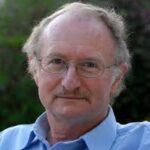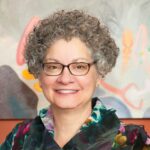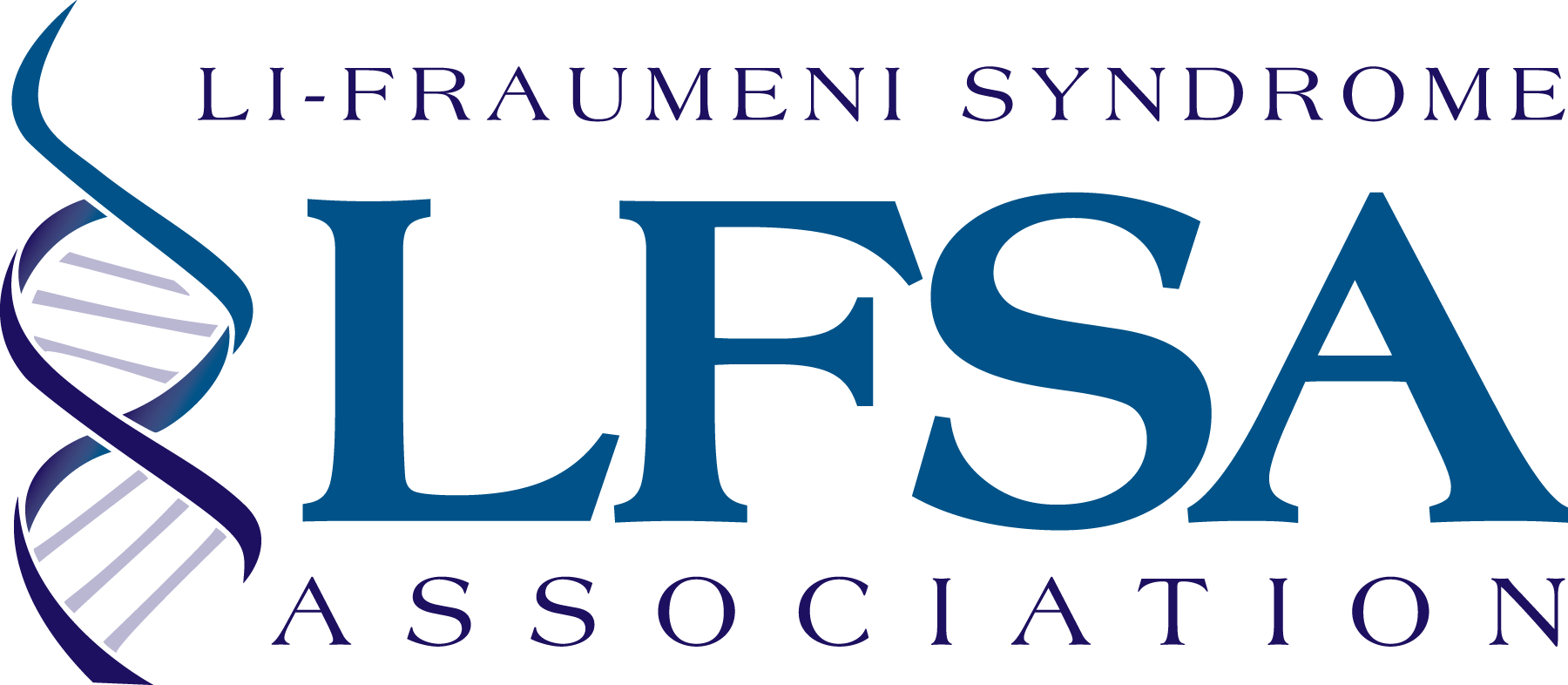The LFSA’s Scientific Advisory Board (SAB) was established in October of 2020. It brings together top TP53 scientists from around the world, representing a cross section of the field of inherited TP53 variations and its consequences. The LFSA’s SAB was instituted to advise the LFSA on basic research and applications to future clinical trials. Co-chaired by both Drs. Maria Isabel Achatz and Arnold Levine, the LFSA’s SAB is charged with suggesting new areas of research, acquiring funding, and providing a global approach to LFS research.
Pairing the LFSA’s global community with the international expertise of the LFSA’s SAB is a “win-win” for both LFS families and science, world-wide. This match provides scientists a large patient population in a rare disorder. With access to many patients all with the same variation but different genetic backgrounds and HLA types (Brazil), inbred population groups, Li-Fraumeni-like patients with the Mormon genetic lineages (via the Huntsman Cancer Center) and large lineages in Brazil, the LFSA’s SAB can explore the impact of racial differences. These are just some of the possible directions that basic scientists could take advantage of together with clinical scientists. The LFSA’s SAB has much to offer the LFS community with their research ideas and suggestions for the direction of future research.
LFSA’s most recent research grant was awarded to Dr. Arnold Levine at the Institute for Advanced Studies in in memory of Professor Thierry Frebourg. Dr. Levine and his collaborators, to include co-sponsor Dr. Michael Walsh of Sloan-Kettering Memorial Hospital, seek to determine if the immune system is responding to breast cancer in Li-Fraumeni syndrome patients and what type of immune cells may be responding. Knowing the particulars of an immune response in TP53 driven LFS-breast cancers may lead to a better understanding of which immunotherapies to utilize to treat patients and possibly lead to new and more effective therapies.
The grant to Dr. Levine and colleagues is awarded in honor and memory of Professor Thierry Frebourg. Thierry served as chapter chair for LFSA – France. He passed away suddenly and unexpectedly this past March. Pr. Frebourg was a true asset to the global community as a major contributor to cancer genetic research and Li-Fraumeni syndrome. Thierry’s boundless energy, dedication, and smile will be forever ingrained in our souls.
View Dr. Arnold Levine’s May 22, 2021, introduction of the LFSA’s SAB here. (13:11)

Maria Isabel Achatz – LFSA’s SAB Co-chair
 Dr. Maria Isabel Waddington Achatz, MD, M.Sc., PhD., is a medical geneticist coordinator of the Oncogenetics Unit at Hospital Sírio-Libanes in São Paulo and Associate Researcher at Clinical Genetics Branch, Division of Cancer Epidemiology and Genetics, National Cancer Institute, National Institutes of Health, USA. Her research, beginning in 2002, allowed the initial description of Brazilian families with Li-Fraumeni syndrome due to the p.R337H variation. Since then, Dr. Achatz described the Brazilian variant of the syndrome and its differences in relation to the classic LFS. Currently, she continues to focus all her efforts on diagnosing patients at risk and developing screening methods that enable risk reduction and early diagnosis in LFS. Dr. Maria Isabel is currently the coordinator of the Brazilian Network of Hereditary Cancer (REBRACH) and service, and is a co-chair of the LFS Association’s Latin America Chapter.
Dr. Maria Isabel Waddington Achatz, MD, M.Sc., PhD., is a medical geneticist coordinator of the Oncogenetics Unit at Hospital Sírio-Libanes in São Paulo and Associate Researcher at Clinical Genetics Branch, Division of Cancer Epidemiology and Genetics, National Cancer Institute, National Institutes of Health, USA. Her research, beginning in 2002, allowed the initial description of Brazilian families with Li-Fraumeni syndrome due to the p.R337H variation. Since then, Dr. Achatz described the Brazilian variant of the syndrome and its differences in relation to the classic LFS. Currently, she continues to focus all her efforts on diagnosing patients at risk and developing screening methods that enable risk reduction and early diagnosis in LFS. Dr. Maria Isabel is currently the coordinator of the Brazilian Network of Hereditary Cancer (REBRACH) and service, and is a co-chair of the LFS Association’s Latin America Chapter.
Arnold Levine – LFSA’s SAB Co-chair
 Prof. Arnold J. Levine, PhD, Professor Emeritus at the Institute for Advanced Study in Princeton, received his B.A. in Biology from Harpur College, SUNY, his Ph.D. from the University of Pennsylvania, and trained as a Postdoctoral Fellow at the California Institute of Technology in the laboratory of Robert Sinsheimer. In 1968, Dr. Levine joined Princeton University as an Assistant Professor, becoming a Professor of biochemistry in 1976. In 1979, he moved to the SUNY Stony Brook School of Medicine to Chair the Department of Microbiology, the same year he and others discovered the p53 tumor suppressor protein, a molecule that inhibits tumor development. He returned to Princeton in 1984. Between 1984 and 1996, he presided over a major expansion of Princeton’s life sciences programs as Chairman of the Department of Molecular Biology. From 1998 to 2002, Dr. Levine was President of The Rockefeller University.
Prof. Arnold J. Levine, PhD, Professor Emeritus at the Institute for Advanced Study in Princeton, received his B.A. in Biology from Harpur College, SUNY, his Ph.D. from the University of Pennsylvania, and trained as a Postdoctoral Fellow at the California Institute of Technology in the laboratory of Robert Sinsheimer. In 1968, Dr. Levine joined Princeton University as an Assistant Professor, becoming a Professor of biochemistry in 1976. In 1979, he moved to the SUNY Stony Brook School of Medicine to Chair the Department of Microbiology, the same year he and others discovered the p53 tumor suppressor protein, a molecule that inhibits tumor development. He returned to Princeton in 1984. Between 1984 and 1996, he presided over a major expansion of Princeton’s life sciences programs as Chairman of the Department of Molecular Biology. From 1998 to 2002, Dr. Levine was President of The Rockefeller University.
Dr. Levine established the Simons Center for Systems Biology at the Institute for Advanced Study, concentrating on research at the interface of molecular biology and the physical sciences. He helped shape U.S. science priorities as chairman of an influential 1996 review panel on federal AIDS research funding. He also chaired the National Cancer Advisory Board, which advises the National Academy of Sciences and its Institute of Medicine on cancer policy. Dr. Levine’s work has been recognized with numerous honors and awards. He was elected to the National Academy of Sciences in 1991, and to its Institute of Medicine in 1995. In April 2001, Levine received the first Albany Medical Center Prize in Medicine and Biomedical Research, the largest annual prize in science or medicine offered in the United States.
The research paths of the Levine group have provided clear evidence that the TP53 pathway plays a central role in the prevention of human cancers and that polymorphic variations in components of the pathway can influence individual responses to environmental mutagens, age of cancer onset, sexual dimorphisms in cancers, response to therapy, and survival times. This research has helped to uncover the genetic origins of cancer and focus drug discovery on a rational path to treat cancers.
Pierre Hainaut
 Dr. Pierre Hainout’s research focuses on TP53 variations and biomarkers in the transition from chronic disease to cancer. From 1994 to 2011, he developed the TP53 mutations database at IARC, a source of information on the causes and consequences of mutations affecting the cancer suppressor protein p53.
Dr. Pierre Hainout’s research focuses on TP53 variations and biomarkers in the transition from chronic disease to cancer. From 1994 to 2011, he developed the TP53 mutations database at IARC, a source of information on the causes and consequences of mutations affecting the cancer suppressor protein p53.
Dr. Hainout’s current research focuses on the effects of gain-of-function in lung cancer and on biomarkers for the early detection of liver and lung cancers, particularly in low-resource countries.
Dr. Hainout is the author of more than 450 publications and 50 books. He has co-edited books on p53 (“25 Years of p53 Research” 2005, 2007, “p53 in the Clinics“, Springer), a manual of molecular epidemiology (“Molecular Epidemiology: Principle and Practice“, IARC Press, 2011), a two-volume manual on human biobanks (“Human Biobanking, Principle and Practice, 2017, 2018) and is co-editor with Paolo Boffetta of the 3rd edition of the Elsevier Cancer Encyclopedia (2018).
Moshe Oren
 Born in Poland, Prof. Moshe Oren immigrated to Israel as a child in 1950. He received his MSc degree in microbiology from Tel Aviv University in 1970, and his PhD in molecular virology from the Weizmann Institute of Science in 1978. He completed postdoctoral work at Princeton University and at SUNY-Stony Brook. In 1981, he joined the Weizmann Institute where he holds the Andre Lwoff Professorial Chair in Molecular Biology. Prof. Oren has held a number of senior positions at the Institute: he served as Director of the Leo and Julia Forchheimer Center for Molecular Genetics, Chair of the Council of Professors and of the Senior Promotions Committee, and from 1999 to 2003, he was Dean of the Faculty of Biology. In 2015, he was appointed the first Director of the newly established Moross Integrated Cancer Center.
Born in Poland, Prof. Moshe Oren immigrated to Israel as a child in 1950. He received his MSc degree in microbiology from Tel Aviv University in 1970, and his PhD in molecular virology from the Weizmann Institute of Science in 1978. He completed postdoctoral work at Princeton University and at SUNY-Stony Brook. In 1981, he joined the Weizmann Institute where he holds the Andre Lwoff Professorial Chair in Molecular Biology. Prof. Oren has held a number of senior positions at the Institute: he served as Director of the Leo and Julia Forchheimer Center for Molecular Genetics, Chair of the Council of Professors and of the Senior Promotions Committee, and from 1999 to 2003, he was Dean of the Faculty of Biology. In 2015, he was appointed the first Director of the newly established Moross Integrated Cancer Center.
Prof. Oren has spent much of his career studying a key player in molecular cancer control—the TP53 tumor suppressor gene. In the early 1980s, he cloned p53, meaning that he determined the sequence of its genetic letters, which has provided the foundation for much of the subsequent p53 research worldwide. Prof. Oren also obtained some of the earliest evidence that TP53 is indeed a tumor suppressor and was the first to prove that this gene causes apoptosis, the natural process that leads to cell death. These findings have enabled physicians to develop innovative therapeutic strategies, including the first clinically approved anti-cancer gene therapy. His work focuses on understanding the mechanisms that govern the activity of TP53 in normal and in cancer cells, and he also investigates the involvement of micro-RNAs, tiny bits of encoded genetic material that regulate protein production, in cancer.
Prof. Oren’s numerous awards include the Leukemia Society of America Scholarship (1985-1990), the Feher Award for Medical Research (1993), the Abisch-Frenkel Prize for Excellence in the Life Sciences (1999), the Sergio Lombroso Award in Cancer Research, the Lombroso Prize for Cancer Research (2002), the Harvey Lectureship of NY (2002), the EMET Prize in Biology (2003), a Merit Award of the National Cancer Institute (2003), and the Israel Prize in 2008 for biochemistry. He serves on the editorial boards of several leading scientific journals and is a member of the Israel Academy of Sciences and Humanities, a Foreign Associate of the US National Academy of Medicine, and a Foreign Honorary Member of the American Academy of Arts and Sciences and of the Academia Europeae.
Guillermina Lozano
 Dr. Guillermina (Gigi) Lozano is a renowned geneticist recognized for her studies of the p53 tumor suppressor pathway. This pathway is undermined in a large percent of human cancers via mutations and deletions of p53. Her laboratory identified a transcriptional activation function for p53. Using mouse models, her team characterized the physiological importance of Mdm2 and Mdm4 proteins as potent inhibitors of p53. The Mdm proteins are over expressed in many cancers that lack p53 mutations presenting an alternate mechanism of eliminating p53 activity. Other mouse models inheriting the most common p53 mutations revealed gain-of-function phenotypes that drive metastases.
Dr. Guillermina (Gigi) Lozano is a renowned geneticist recognized for her studies of the p53 tumor suppressor pathway. This pathway is undermined in a large percent of human cancers via mutations and deletions of p53. Her laboratory identified a transcriptional activation function for p53. Using mouse models, her team characterized the physiological importance of Mdm2 and Mdm4 proteins as potent inhibitors of p53. The Mdm proteins are over expressed in many cancers that lack p53 mutations presenting an alternate mechanism of eliminating p53 activity. Other mouse models inheriting the most common p53 mutations revealed gain-of-function phenotypes that drive metastases.
Dr. Lozano received her BS degree in Biology and Mathematics, Magna Cum Laude, at the University of Texas Rio Grande Valley. She completed graduate studies at Rutgers University and the University of Medicine and Dentistry of New Jersey, and a post-doctoral fellowship with Dr. Arnold Levine at Princeton University.
Dr. Lozano was hired as an Instructor at The University of Texas MD Anderson Cancer Center in 1987 and quickly rose through the ranks to her current position as professor and chair of the department of Genetics. Dr. Lozano is a member of the National Academy of Sciences, the National Academy of Medicine and the American Academy of Arts and Sciences. She has received the Minorities in Cancer Research Jane Cooke Wright Lectureship and the Women in Cancer Research Charlotte Friend Lectureship awards both from the American Association for Cancer Research. She is also the recipient of distinguished alumni awards from both her undergraduate and graduate alma maters.
Drew Pardoll
 Dr. Drew Pardoll is the Abeloff Professor of Oncology, Medicine, Pathology and Molecular Biology and Genetics at the Johns Hopkins University, School of Medicine. He is the Director of the Bloomberg~Kimmel Institute for Cancer Immunotherapy and Co-Director of the Cancer Immunology Program at the Sidney Kimmel Comprehensive Cancer Center at Johns Hopkins.
Dr. Drew Pardoll is the Abeloff Professor of Oncology, Medicine, Pathology and Molecular Biology and Genetics at the Johns Hopkins University, School of Medicine. He is the Director of the Bloomberg~Kimmel Institute for Cancer Immunotherapy and Co-Director of the Cancer Immunology Program at the Sidney Kimmel Comprehensive Cancer Center at Johns Hopkins.
Dr. Pardoll attended Johns Hopkins University where he earned his M.D., Ph.D. in 1982 and completed his Medical Residency and Oncology Fellowship in 1985. He then worked for three years at the National Institutes of Health as a Medical Staff Fellow. Dr. Pardoll joined the departments of oncology and medicine in 1988. Dr. Pardoll has published over 300 papers as well as over 20 book chapters on the subject of T cell immunology and cancer vaccines. He has served on the editorial board of the Journal of the National Cancer Institute and Cancer Cell, and has served as a member of scientific advisory boards for the Cancer Research Institute, the University of Pennsylvania Human Gene Therapy Gene Institute, Biologic Resources Branch of the National Cancer Institute, Harvard-Dana Farber Cancer Center, Cerus Corporation, Global Medical Products Corporation, Genencor Corporation, CellGenesys Corporation, Mojave Therapeutics, the American Association of Clinical Oncology, the American Association of Cancer Research, and now for the LFS Association.
Dr. Pardoll has made a number of basic advances in Cellular Immunology, including the discovery of gamma – delta T cells, NKT cells and interferon-producing killer dendritic cells. Over the past two decades, Dr. Pardoll has studied molecular aspects of dendritic cell biology and immune regulation, particularly related to mechanisms by which cancer cells evade elimination by the immune system. He is an inventor of a number of immunotherapies, including GVAX cancer vaccines and Listeria monocytogenes based cancer vaccines. Dr. Pardoll’s basic immunology discoveries include the identification of gd-T cells, NKT cells and IKDC. He elucidated the role of Stat3 signaling in tumor immune evasion and in Th17 development, leading to the discovery that Stat3-driven Th17 responses promote carcinogenesis. Dr. Pardoll discovered one of the two ligands for the PD-1 inhibitory receptor and leads the Hopkins cancer immunology program that developed PD-1 pathway-targeted antibodies, demonstrating their clinical activity in multiple cancer types.
Dr. Pardoll’s more than 300 articles cover cancer vaccines, gene therapies, cancer prevention technologies, recombinant immune modulatory agents for specific pathways that regulate immunity to cancer and infectious diseases.
Sean Downing – LFSA’s Scientific Advisor
 Dr. Sean Downing is the Senior Director of Clinical Biomarker Innovation and Development at Takeda Pharmaceuticals and the Head of Molecular Pathology and Genomics. Dr. Downing earned his PhD from the Faculty of Medicine at the University of New South Wales in Syndey, Australia where is work focused on the roles of TP53 variations in the establishment and progression of prostate cancer. His MSc was earned at the University of Massachusetts and focused on the role of TP53 in mammary gland development. Dr. Downing performed his postdoc at Dana-Farber Cancer Institute in Boston developing novel cell lines that more closely replicated the natural course of prostate cancer genetic alterations, including TP53 variations, worked on blood-borne biomarkers of prostate cancer, and investigated genes suspected of causing the heredity form of prostate cancer.
Dr. Sean Downing is the Senior Director of Clinical Biomarker Innovation and Development at Takeda Pharmaceuticals and the Head of Molecular Pathology and Genomics. Dr. Downing earned his PhD from the Faculty of Medicine at the University of New South Wales in Syndey, Australia where is work focused on the roles of TP53 variations in the establishment and progression of prostate cancer. His MSc was earned at the University of Massachusetts and focused on the role of TP53 in mammary gland development. Dr. Downing performed his postdoc at Dana-Farber Cancer Institute in Boston developing novel cell lines that more closely replicated the natural course of prostate cancer genetic alterations, including TP53 variations, worked on blood-borne biomarkers of prostate cancer, and investigated genes suspected of causing the heredity form of prostate cancer.
Since his postdoc, Dr. Downing’s work has shifted more to genomic and proteomic biomarkers of cancer, as well as, other diseases. While at Children’s Hospital Boston, he discovered a number of biomarkers in platelets that predict response to anti-angiogenic therapy and the presence of tumors in a number of cancers. Dr. Downing is the coinventor of the first NGS pan-cancer next generation sequencing test for cancer, FoundationOne, at Foundation Medicine, and has been awarded several patents. The test examines hundreds of genes involved in tumor initiation and progression, including TP53. Sean has established several CLIA laboratories that provide clinical tests to patients and has been actively involved in clinical-based research for 20 years. His current role examines biomarkers for cancer and gastrointestinal disorders, as well as, the development of diagnostic tests.

